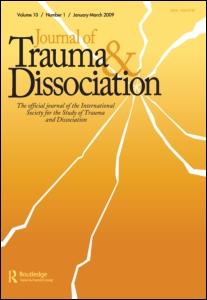
 |
Call for SubmissionsTrauma, Narratives, Institutions: Transdisciplinary Dialogues
|
This special issue of the Journal of Trauma and Dissociation aims at bringing together socio-historical, anthropological, psychological, and cultural theorizations of institutional roles and narratives and the ways that they impact the lives of traumatized individuals.
Narratives and Institutions: Virtually all institutions are sustained through production of narratives (Routledge Encyclopedia of Narrative Theory). These narratives reflect the power relations and ideologies of institutions and reveal the politics of the larger structures that govern them. In light of ongoing global forced migrations, socio-political negotiations of gender and trauma, and persistent urban inequalities worldwide, institutional presence is ubiquitous but insidious in its workings. While it is well recognized that institutional betrayal can revictimize trauma survivors through shaming or victim-blaming narratives (Smith and Freyd 2014), neither the narratives on which institutions rely nor the narratives that they produce are systematically explored within trauma studies.
Unanswered Questions: How are institutions positioned to manage psychic and bodily trauma and how does trauma manifest and develop under institutional narratives of power? How can the narrative representation of trauma through literature, history, and art shed light on current institutional practices, and conversely, what kinds of representations are produced under institutional influence? What are the experiences of trauma caused, for example, by living under racist rhetoric and structures? How is the experience of trauma changed when it is enacted by social institutions, and when it has institutional power behind it? And, importantly, what kind of a narrative is trauma itself, and how does it shape the content and methodology of different disciplines?
The co-editors will consider theoretical and conceptual manuscripts, position papers, clinical conceptualizations, and comprehensive literature reviews. Topics to be explored include but are not limited to military sexual trauma, medicine, race, and gender, literature and institutional representations, urban conflict, total war, and PTSD, institutional secondary traumatic stress disorder, institutional memory and discourse, artistic representations of institutional trauma, individual identity and institutional narratives, forced migration and institutional practices, institutional betrayal, systemic trauma and history.
Please email submissions directly to the co-editors: trauma.narratives.institutions@gmail.com
Deadline: March 1, 2020
All submitted manuscripts that meet the requirements for this special issue will undergo peer review. Final selection of manuscripts will be based on relevance and potential impact, methodological rigor, scientific and/or clinical value, implications for application, and available space. Final acceptance will be based on approval by the special issue guest editors and the editor-in-chief of the Journal of Trauma and Dissociation.
See the Journal of Trauma and Dissociation website for more information about the submission requirements:https://dynamic.uoregon.edu/jjf/jtd/
Manuscripts should be 1500-5500 words. For more instructions, see Submission Instructions for Authors at https://dynamic.uoregon.edu/jjf/jtd/instructions.html
Authors are welcome (but not required) to submit abstracts for feedback regarding appropriateness for this issue to trauma.narratives.institutions@gmail.com
Interested in peer reviewing for this special issue? Email us at trauma.narratives.institutions@gmail.com
For more information about the Journal of Trauma & Dissociation, see: https://dynamic.uoregon.edu/jjf/jtd/.